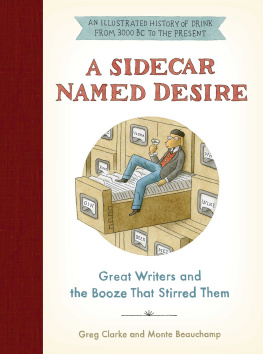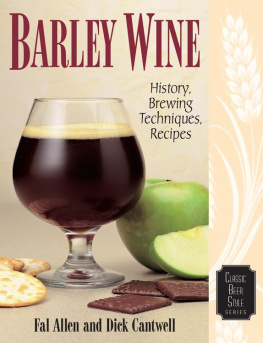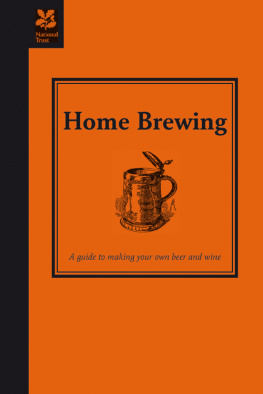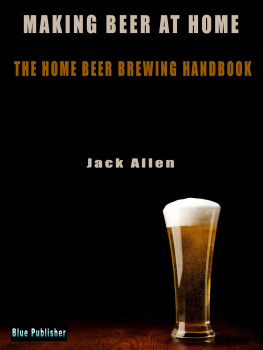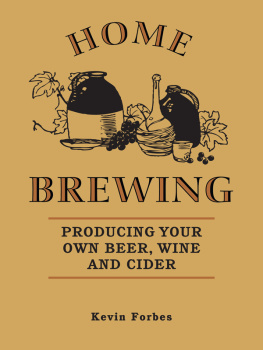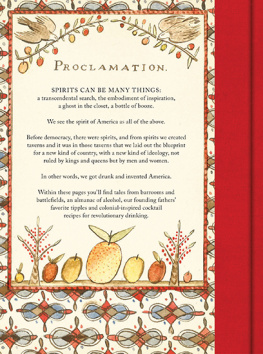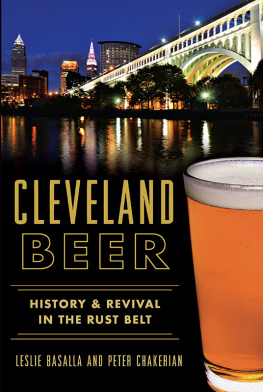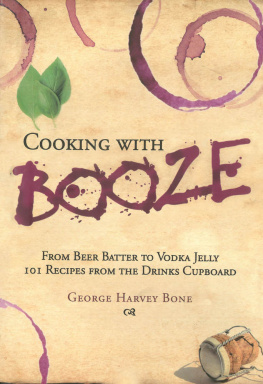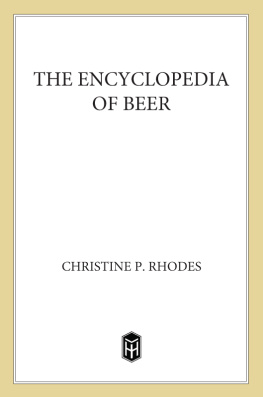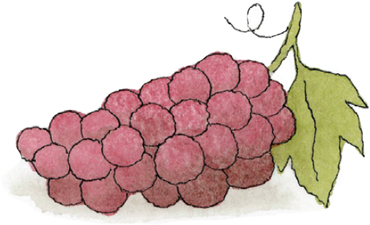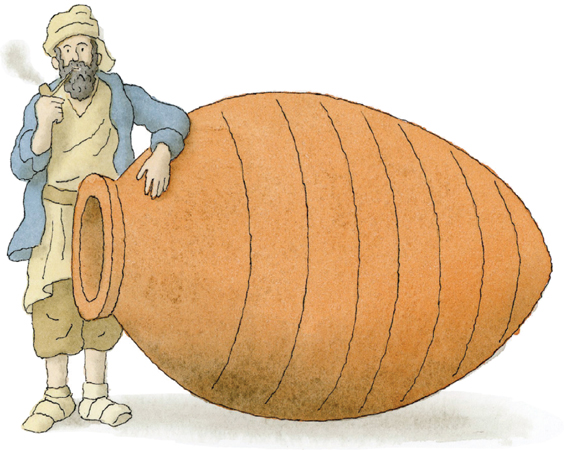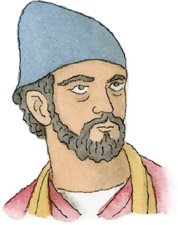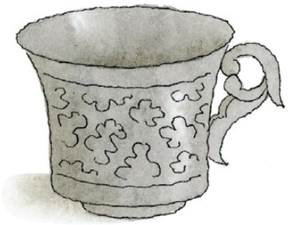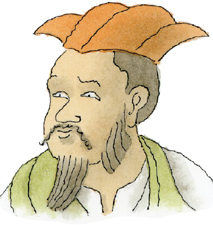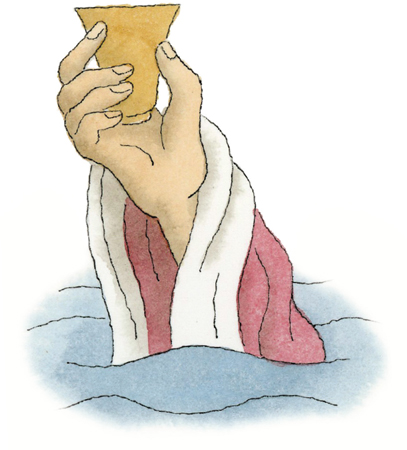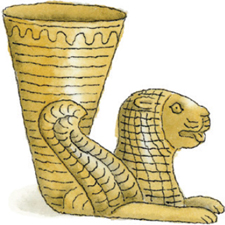To Jenifer, Greta, and Julian.
Greg Clarke
For Rebecca Ann, who keeps me
believing in impossible things.
Monte Beauchamp
Contents
As I say, I was lighted up. In my brain every thought was at home. Every thought, in its little cell, crouched ready-dressed at the door, like prisoners at midnight, waiting a jail-break. And every thought was a vision, bright-imaged, sharp-cut, unmistakable. My brain was illuminated by the clear, white light of alcohol. John Barleycorn was on a truth-telling rampage.... And I was his spokesman.
Jack London, John Barleycorn (1913)
Humankind has been turning to booze to help summon up creative inspiration since before the days of Bacchus. The history of alcohol, and its use by writers, artists, and musicians to stimulate the imagination and elicit the elusive muse, is well documented. Temperance zealots over the years may have decried the evils of drink, but there are considerable examples in the canon of literature to suggest, at the very least, a connection between alcohol and great writing.
In the case of some writers, the eventual toll booze exacted on mind and body was significant, and access to the muse short-lived. Jack London, Malcolm Lowry, Ernest Hemingway, F. Scott Fitzgerald, Edna St. Vincent Millay, and Jack Kerouac all soared to great heights under the influence, only to crash and burn. Other writersJames Joyce, Herman Melville, Maya Angeloumanaged to reap the creative benefits of alcohols mind-loosening properties without succumbing to its ravages.
A 2012 study reported in the journal Consciousness and Cognition (conducted by Andrew F. Jarosz, Gregory J. H. Colflesh, and Jennifer Wiley, at the University of Illinois at Chicago) supports the notion that thinking outside the boxa necessary precondition for creativitycan be aided by a few drinks. In Uncorking the Muse: Alcohol Intoxication Facilitates Creative Problem Solving, the authors share their finding that sober subjects took longer to solve creative word problems than their tipsy counterparts.
In addition to alcohols creative benefits, we would argue that there is no greater pleasure than a good book, paired with a good drink! Certain writers, and certain bottles of alcohol, now fetch eye-popping sums on the auction block. Recently, ten bottles of 1945 Chteau Mouton Rothschild Bordeaux sold for $343,000, while an inscribed 1925 first edition of Fitzgeralds The Great Gatsby sold for $162,500. Proof positive that we like our booze, and we like our authors who like their booze.
Perhaps unsurprisingly, the idea for this book, a history of spirits and great literature accompanied by copious visual tomfoolery, was conceived in a dimly lit bar following a tough week at the studioand the consumption of several rejuvenating sidecars. Two years and many cocktails later, the Muse of Booze has blessed us with this book. Cheers!
Monte Beauchamp and Greg Clarke, October 2018
Wine is bottled poetry.
Robert Louis Stevenson, The Silverado Squatters (1884)
Booze-ologists may quibble over which spirit is older, beer or wine, but theres no question that wine has inspired more rapturous poetry and prose. Great literature aside, wine has inspired a cottage industry of scribes who make their living writing exclusively about the beverage. Picture the oft-derided wine critic with the golden palate, capable of detecting hints of pencil lead, saddle leather, road tar, cigar box, cat piss, and wet dog in his glass.
Regardless of which came first, it was undoubtedly a happy accident when Stone Age hominids discovered the intoxicating properties of spoiled, or naturally fermented, fruit juice. They couldnt possibly know that what they were drinking would ultimately stir the human imagination, grease the wheels of civilization, and become the most widely written about liquid refreshment in human history.
ANCIENT GEORGIA ON MY MIND
M any historians consider ancient Georgia to be the birthplace of wine. Inhabitants of the fertile valleys of the South Caucasus have been making wine for eight thousand years using an age-old method that requires no wooden barrels, vats, or monitoring systems. Instead, they used (and still use today) giant terra-cotta qvevri vessels made from Georgian clay and lined with beeswax. The pots were buried underground and filled with grapes, which were then fermented with natural yeast for two weeks and sealed for six to twelve months of aging.
The Georgian national poet, Shota Rustaveli, was among the earliest native sons to sing the praises of the regions wines. His twelfth-century epic poem, The Knight in the Panthers Skin (written some two hundred years before Thomas Malorys Le Morte dArthur), is a story of knights, friendship, chivalry, and courtly love, filled with references to the local wine culture.
Shota Rustaveli.
WILD GRAPES IN CHINESE ANTIQUITY
I n ancient China, a fermented beverage using indigenous Chinese grapes appeared in the prehistoric Neolithic era, around 7000 BC, but larger-scale production of grape wine didnt happen until the Tang dynasty (AD 618907).
Tang dynasty silver cup.
In his poem Xiuxi Yin, Eastern Han dynasty poet Ruan Ji (210263) wrote, in a testament to wine as a creative stimulant, Once drunk, a cup of wine can bring 100 stanzas of poetry.
Ruan Ji.
Li Bai (701762), considered one of Chinas greatest poets, wrote rapturously of wineone of his most famous poems is entitled Waking from Drunkenness on a Spring Day. He would later die drunk, drowning facedown in a river while attempting to embrace the moons reflection.
PERSIAN WINE OF YORE
R ecent excavations in Iran (ancient Persia) have uncovered pottery vessels containing tartaric acid, an indicator of the presence of wine, dating from 31002900 BC.
Ancient Persian drinking vessel.
According to Persian folklore, wine was discovered when a girl, despondent after being rejected by her king, attempted suicide by poisoning herself with the residue of rotted grapes. Her spirits were miraculously lifted, and the next day she reported her intoxicating discovery to the king, who duly rewarded her.
Twelfth-century Persian poet and philosopher Omar Khayyms verse is soaked in references to wine and the joy it brings to our fleeting existence on earth. In The Rubiyt, the title given to a selection of his poems translated by poet Edward FitzGerald and published in 1859, Khayyam writes:
Drink wine. This is life eternal.
This is all that youth will give you.
It is the season for wine,
Next page
